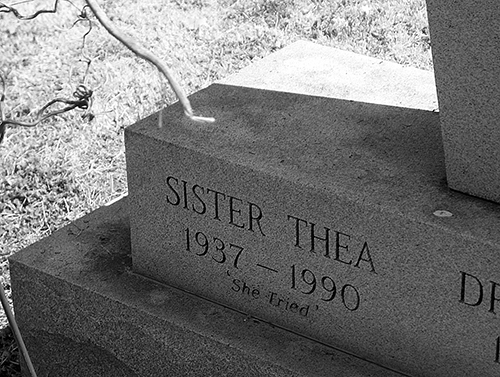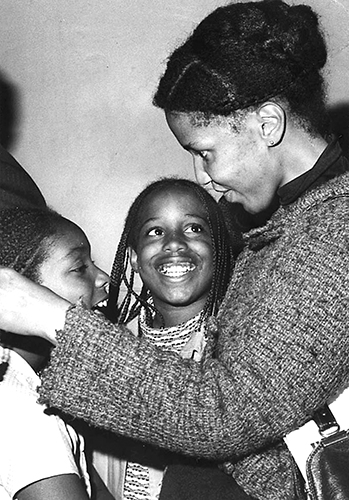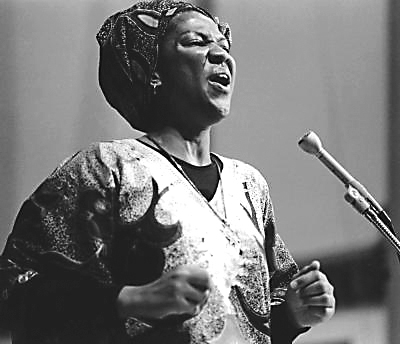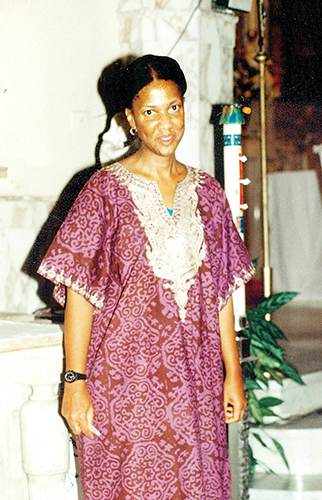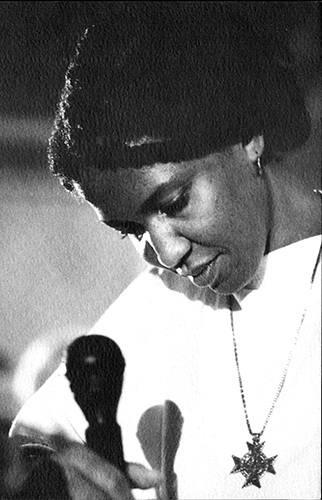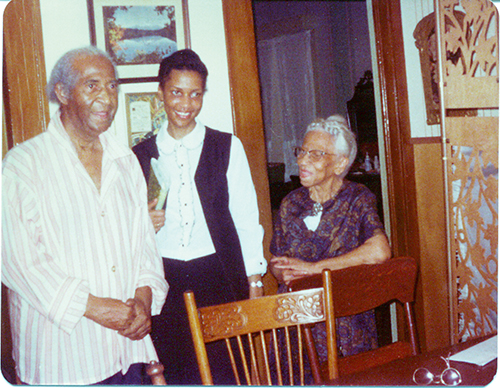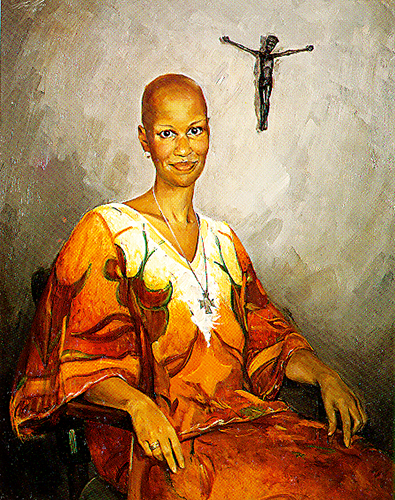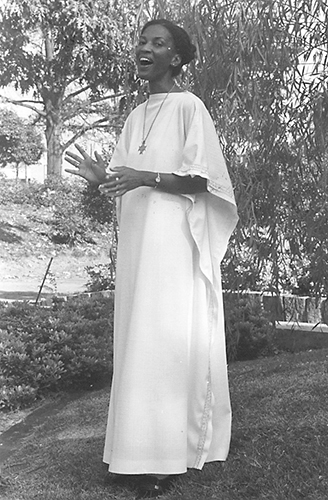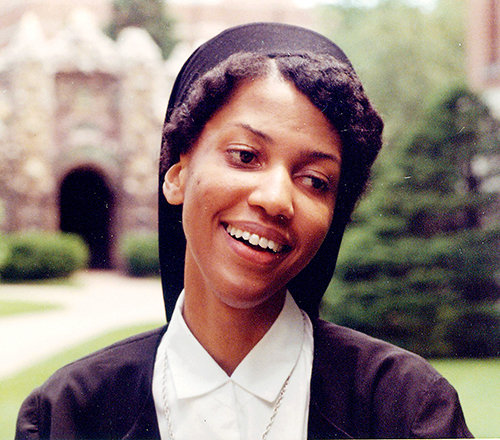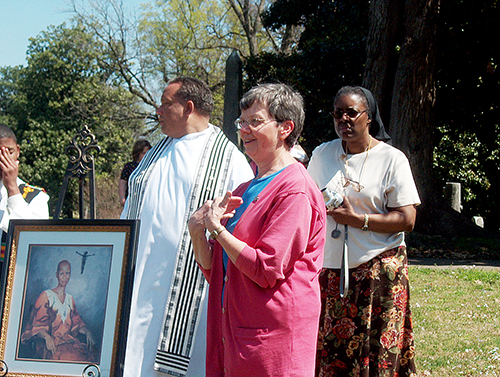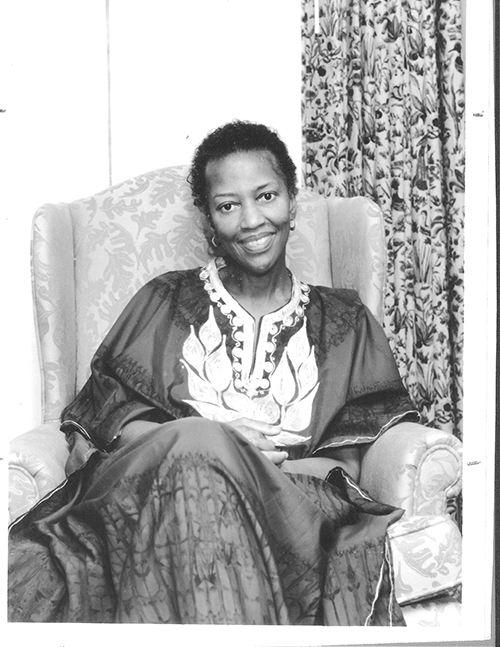(EDITOR’S NOTE: About three weeks before she died, Sister Thea Bowman, FSPA, wrote a meditation for Holy Week as part of a Mississippi Catholic Lenten series. She dictated it to Sister Dorothy Kundinger, her companion. This was probably her last public writing and was published April 6, 1990)
Let us resolve to make this week holy by claiming Christ’s redemptive grace and by living holy lives. The Word became flesh and redeemed us by his holy life and holy death. This week especially let us accept redemption by living grateful, faithful, prayerful, generous, just and holy lives.
Let us resolve to make this week holy by reading and meditating Holy Scripture. So often we get caught up in the hurry of daily living. As individuals and as families, reserve prime time to be with Jesus, to hear the cries of the children waving palm branches, to see the Son of Man riding on an ass’ colt, to feel the press of the crowd, to be caught up in the “Hosannas” and to realize how the cries of acclamation will yield to the garden of suffering, to be there and watch as Jesus is sentenced by Pilate to Calvary, to see him rejected, mocked, spat upon, beaten, and forced to carry a heavy cross, to hear the echo of the hammer, to feel the agony of torn flesh and strained muscles, to know Mary’s anguish as he hung three hours before he died.
We recoil before the atrocities of war, gang crime, domestic violence and catastrophic illness. Unless we personally and immediately are touched by suffering it is easy to read Scripture and to walk away without contacting the redemptive suffering that makes us holy. The reality of the Word falls on deaf ears.
Let us take time this week to be present to someone who suffers. Sharing the pain of a fellow human will enliven Scripture and help us enter into the holy mystery of the redemptive suffering of Christ.
Let us resolve to make this week holy by participating in the Holy Weeks services of the church, not just by attending, but also by preparing, by studying the readings, entering into the spirit, offering our services as ministers of the Word or Eucharist, decorating the church or preparing the environment for worship.
Let us sing, “Lord, have mercy,” and “Hosanna.” Let us praise the Lord with our whole heart and soul and mind and strength, uniting with the suffering church throughout the world – in Rome, and Northern Ireland, in Syria and Lebanon, in South Africa and Angola, India and China, Nicaragua and El Salvador, in Washington, D.C., and Jackson, Miss.
Let us break bread together, let us relive the holy and redemptive mystery. Let us do it in memory of Him acknowledging in faith his real presence upon our altars.
Let us resolve to make this week holy by sharing holy peace and joy within our families, sharing family prayer on a regular basis, making every meal a holy meal where loving conversations bond family members in unity, sharing family work without grumbling, making love not war, asking forgiveness for past hurts and forgiving one another from the heart, seeking to go all the way for love as Jesus went all the way for love.
Let us resolve to make this week holy by sharing holy peace and joy with the needy, the alienated, the lonely, the sick and afflicted, the untouchable.
Let us unite our sufferings, inconveniences and annoyances with the sufferings of Jesus. Let us stretch ourselves, going beyond our comfort zones to unite ourselves with Christ’s redemptive work.
We unite ourselves with Christ’s redemptive work when we reconcile, when we make peace, when we share the Good News that God is in our lives, when we reflect to our brothers and sisters God’s healing, God’s forgiveness, God’s unconditional love.
Let us be practical reaching out across the boundaries of race and class and status to help somebody, to encourage and affirm somebody, offering to the young an incentive to learn and grow, offering to the downtrodden resources to help themselves.
May our fasting be the kind that saves and shares with the poor, that actually contacts the needy, that gives heart to heart, that touches and nurtures and heals. During this Holy Week, when Jesus gave his life for love, let us truly love one another.
RELATED ARTICLES
- Anniversary offers chance to reflect on Sr. Bowman’s message, legacy
- Sr. Thea: scholar, teacher, famous black woman
- Bishop remembers Sister’s patient enthusiasm
- Local Events Honoring Sister Bowman
- Local Sister Thea Bowman School carries on mission
- Franciscan Sisters announce events to honor Sister Bowman

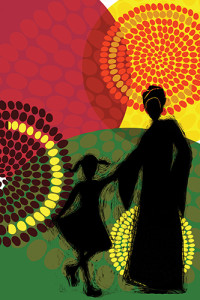 adison St. Joseph High School Fine Arts Center, “Thea’s Turn,” a play written by Mary Queen Donnelly. For tickets: theasturntickets@gmail.com or 601-960-8470.
adison St. Joseph High School Fine Arts Center, “Thea’s Turn,” a play written by Mary Queen Donnelly. For tickets: theasturntickets@gmail.com or 601-960-8470.